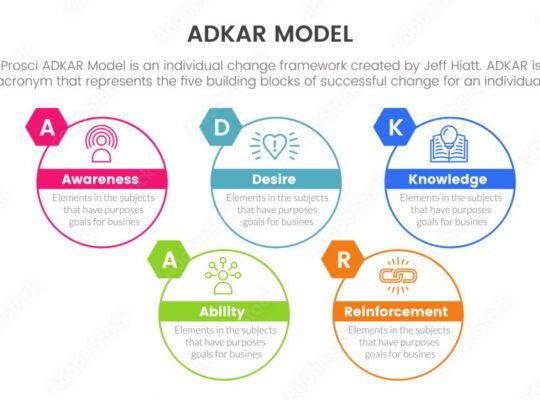In today’s dynamic business landscape, organizational transformation is not merely a buzzword but a strategic imperative for sustained success. As a seasoned management consultant with over two decades of experience working across diverse industries and global markets, I have witnessed firsthand the transformative power of change. In this article, we delve into the pivotal role of change management in navigating the complexities of organizational evolution.
Understanding Change Management: A Strategic Imperative
Change, be it driven by technological advancements, market shifts, or internal restructuring, demands a strategic and well-executed approach. Change management serves as the linchpin in orchestrating successful transformations by ensuring that the human element is not just considered but actively engaged and empowered throughout the process.
The Human Side of Transformation
In my extensive consultancy journey, spanning industries from Realty to Agro and global regions from the US to Dubai, I’ve come to recognize that the success of any organizational transformation is inherently tied to how well the workforce adapts to and embraces change. Change management, therefore, becomes the strategic framework through which leaders guide their teams through the complexities of transition.
Creating a Change-Ready Culture
A key aspect of effective change management lies in fostering a culture that embraces change as a constant rather than an exception. This involves transparent communication, engagement at all levels, and the cultivation of a mindset that views challenges as opportunities for growth. Drawing from my experiences in the Telecom and SaaS industries, where rapid technological advancements necessitate continual adaptation, I’ve seen firsthand the transformative impact of a change-ready culture.
Leadership’s Role in Driving Change
Leadership plays a pivotal role in shaping the success of organizational transformation. Drawing on my work in Education and Pharma, where regulatory changes often dictate strategic shifts, I emphasize the importance of visionary leadership. Leaders must not only communicate the ‘why’ behind the transformation but also exemplify a commitment to change through their actions. Effective leaders actively involve their teams, providing the necessary support and resources to navigate the journey of transformation.
Change Management Across Borders
Having collaborated with clients in Australia, Singapore, Europe, and beyond, I’ve come to appreciate the nuances of change management in a global context. Cultural diversity and regional dynamics necessitate a tailored approach, and successful change management strategies must account for these variations. Flexibility, cultural sensitivity, and open communication become paramount when guiding teams through transformation on an international scale.
Measuring Success: Key Performance Indicators in Change Management
In the world of Retail, Media, and Entertainment, where consumer preferences evolve rapidly, measuring the success of organizational transformation is crucial. Identifying and tracking key performance indicators specific to the transformational goals ensure that the process remains on course and delivers the anticipated outcomes. From enhanced operational efficiency to improved employee satisfaction, these metrics provide valuable insights into the impact of change.
In conclusion, the role of change management in organizational transformation cannot be overstated. It is the compass that guides businesses through uncharted territories, ensuring a smooth and purposeful journey towards the future. As a management consultant dedicated to steering organizations through change across the globe, I’ve witnessed the transformative power of a well-executed change management strategy. In an era where adaptability is synonymous with success, embracing change management is not just a choice but a strategic imperative for organizational evolution.







